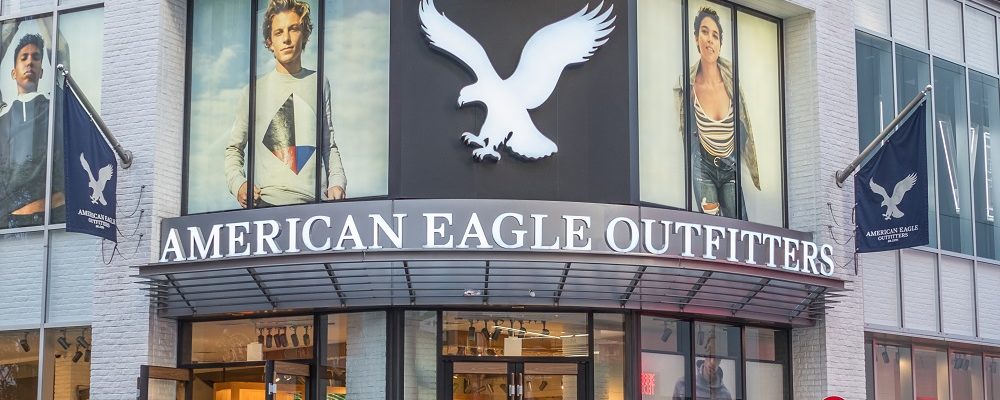US apparel brand American Eagle has garnered favourable coverage from Fast Company for a recent initiative designed to shrink the distance between the firm and some of its most loyal customers. [1]
As the piece points out, the brand has a long-established track record on social issues – backing the Parkland students’ campaign against gun violence, supporting LGBT rights and providing a powerful voice on issues around body positivity.
“Until now,” the article says, “much of [the firm’s] brand activism has come out of carefully studying its customers, who are currently Gen-Z teens. But the brand has just created a new way to more formally incorporate the perspectives of young people into its corporate decision making: it launched a council consisting of nine young people between the ages of 16 to their early twenties.”
Dubbed ‘AExME’ – a condensed form of ‘American Eagle times Me’ – the council meets during educational holidays to come up with things that the company could do to enhance its standing with its customer base. And importantly, it actually has clout.
As a result of the council’s initial discussions, American Eagle has already i) created an instore donations campaign to help restore Californian forests damaged by recent wildfires, ii) hatched a tree-planting scheme in partnership with an ecological agency and iii) launched a denim-recycling programme that has so far gathered up 11,000 pairs of discarded jeans. The firm’s global brand president Chad Kessler says in the piece: “We are treating these council members like board members.”
A 4 June snapshot of the company’s performance at Bloomberg [2] suggests that the strategy is paying off, with Cowen retail analyst Oliver Chen saying that the brand is “working from a position of strength” amid a troubled sector.
Kessler also features in Bloomberg’s piece, saying of the council: “It’s important for kids in this generation to know not all big companies are the same. We are turning over a certain amount of control of the brand to this generation.”
What can other leaders learn from the trust that American Eagle has invested in its Gen-Z council, and how it takes the members’ ideas seriously? And how should leaders who want to emulate this initiative integrate a council of customers into the company’s decision-making processes so that it has tangible impacts, and isn’t just a public-relations exercise?
Institute of Leadership & Management head of research, policy and standards Kate Cooper says: “This is a new and interesting take on the focus group. In the UK, we’ve come to think of focus groups as integral to how political parties pitch their messages to the public: ‘Let’s find out what people are thinking, and then we can adjust our policies accordingly and, all being well, enhance our base of support.’ With this, though, while there’s clearly an element of self-interest on American Eagle’s part, the company is using this council of young people on what appears to be a consultative basis, and treating the relationship respectfully.
“They will obviously not be able to implement all of the suggestions that the council produces. But in implementing some, the company will have opportunities to explain why others are not being taken forward – which will, in turn, help the council understand more about the nature of the business, and how it works.”
However, Cooper queries Kessler’s remarks on how the firm is handing control of the brand to the council’s generation. “You don’t really control your brand,” she notes. “You may do your best to control it – but what your brand actually means depends very much upon the perception of the individual. What I think they’re doing is getting this generation to buy into their brand, because the council demonstrates that the firm is tuning into the concerns of that particular demographic.”
She points out: “For this to be more than a PR exercise, the company must ensure it has an ongoing relationship with the council’s members – one that helps them to feel that they are genuinely part of American Eagle’s future, and aren’t just being used cosmetically to market one-off schemes or campaigns. Interestingly, business philosopher and Institute companion Charles Hampden-Turner notes that, in terms of revenue, ethically minded US companies will outperform their more traditional rivals eight times over. So in the long term, ensuring that value is shared, stakeholders are rewarded and that you’re building a sustainable business by looking after customers, staff and the environment really pays off.”
Cooper adds: “We tend to be so cynical about these sorts of initiatives. But in the end, why can’t it be beneficial – firstly for the council, who are assured that they are influencing the company, making a difference with their suggestions and finding out about how the business works, and secondly for the brand, which is harnessing some vital, fresh ideas? This is what real corporate social responsibility is all about. It’s not a matter of mailing a cheque to a noble cause, or sending staff on a volunteering day. It’s about weaving CSR into the very fabric of your offer, and how you do business.”
For further insights on the themes raised in this blog, check out the Institute’s resources on managing customer relationships and social responsibility
Image of American Eagle outlet courtesy of MAHATHIR MOHD YASIN, via Shutterstock

